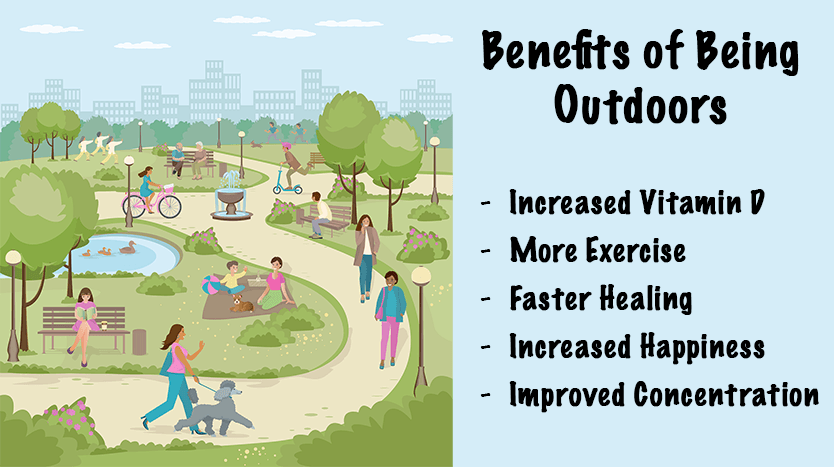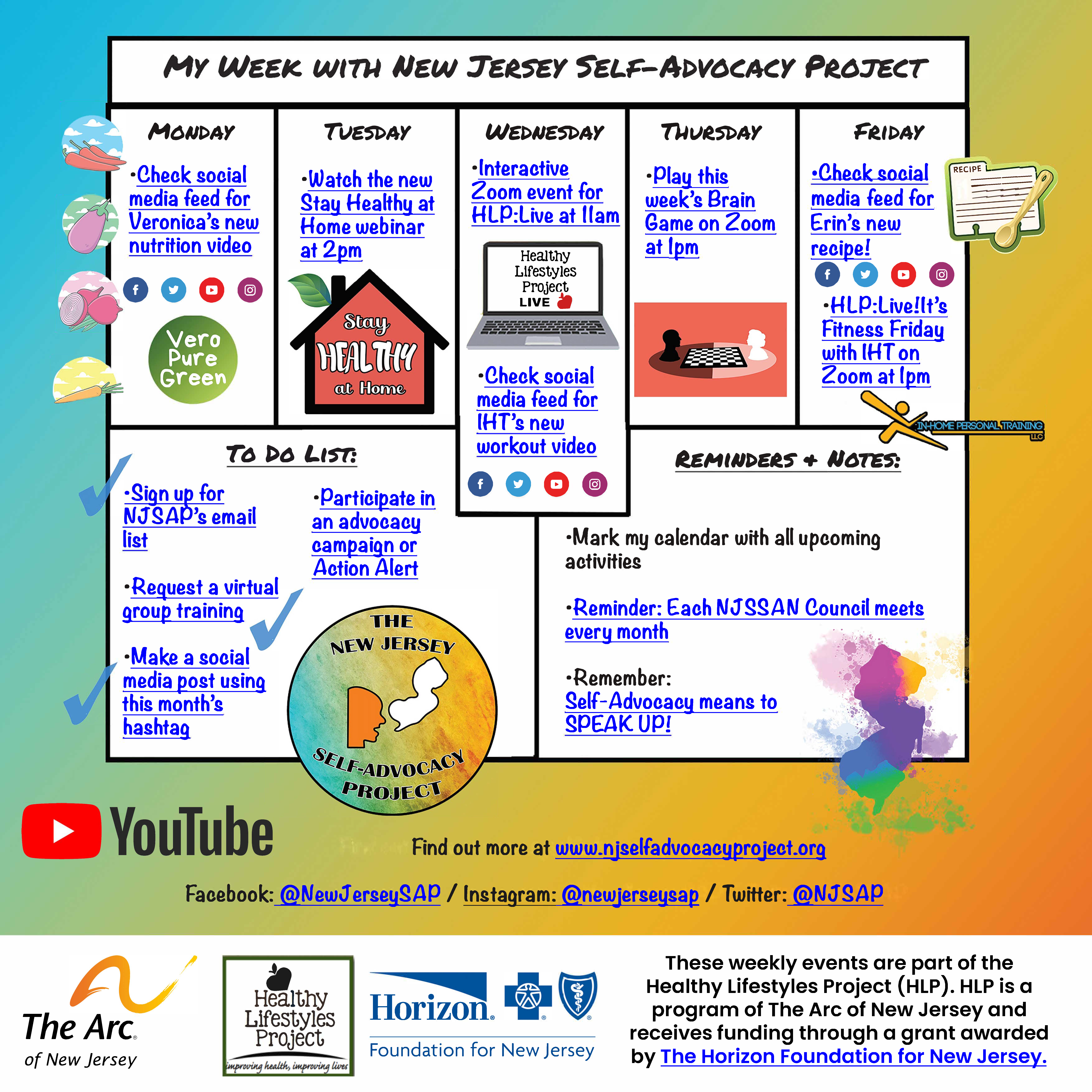
Welcome to the Positive Pulse blog! Check in with us each month for tips on healthy living, right on our website. A short snippet will be featured in the NJSAP monthly newsletter as well, which you can sign up for here.
This month's topic includes the benefits to being outside for both your mind and body.
Sunlight increases your Vitamin D levels. Often called the sunshine vitamin, sunlight hitting the skin begins the process that eventually leads to the creation of the biologically active form of Vitamin D. It may have protective effects against everything from osteoporosis to cancer to depression to heart attacks and stroke. You'll make all the vitamin D you need if you get outside a few times a week during these summer days and expose your arms and legs for 10 to 15 minutes.
Indoor living is associated with being sedentary, particularly for children, while being outdoors is associated with activity. If you make getting outside a goal, that should mean less time in front of the television and computer and more time walking, biking, gardening, cleaning up the yard, and doing other things that put the body in motion.
Sun can even help you heal faster. University of Pittsburgh researchers reported in 2005 that spinal surgery patients experienced less pain and stress and took fewer pain medications during their recoveries if they were exposed to natural light. An older study showed that the view out the window (trees vs. a brick wall) had an effect on patient recovery.
The great outdoors also has benefits for your mind. Light tends to elevate people's mood, and unless you live in a glass house or are using a light box to treat seasonal affective disorder, there's usually more light available outside than in. Physical activity has been shown to relax and cheer people up, so if being outside replaces inactive pursuits with active ones, it might also mean more smiles and laughter. Researchers at the University of Essex in England are advancing the notion that exercising in the presence of nature has added benefit, particularly for mental health. Their investigations into "green exercise," as they are calling it, dovetails with research showing benefits from living in proximity to green, open spaces.
Additionally, researchers have reported that children with ADHD seem to focus better after being outdoors. A study published in 2008 found that children with ADHD scored higher on a test of concentration after a walk through a park than after a walk through a residential neighborhood or downtown area. Other ADHD studies have also suggested that outdoor exercise could have positive effects on the condition. Truth be told, this research has been done in children, so it's a stretch to say it applies to adults, even those who have an ADHD diagnosis. But if you have trouble concentrating you might see if some outdoor activity helps.
So take some time during the beautiful summer season to go outside and stay healthy! Don't forget to join our Trailblazers movement club for engaging ways to get fit.
SOURCE: https://www.health.harvard.edu/newsletter_article/a-prescription-for-better-health-go-alfresco

